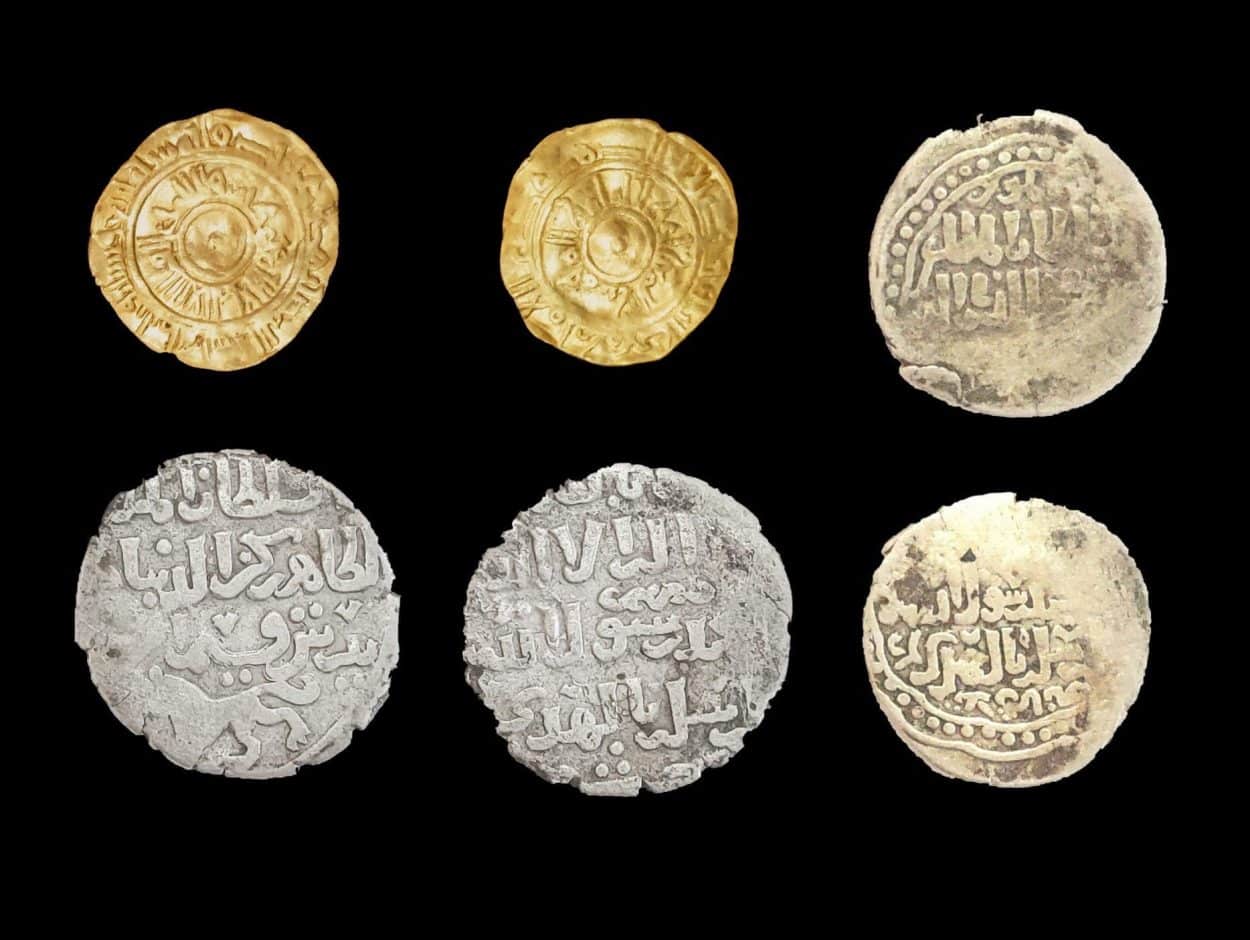Archaeologists have uncovered a coin hoard from the Islamic Era during excavations in Esna, Egypt.
The discovery was made by researchers from the Egyptian archaeological mission of the Supreme Council for Archaeology.
Esna is mostly known for the Ancient Egyptian temple of Esna, dedicated to the god Khnum, his consorts Menhit and Nebtu, their son, Heka, and the goddess Neith.
The team were excavating next to the temple, where they found a hoard consisting of coins from different parts of the Islamic Era, in addition to coin moulds and weights, which may indicate the existence of a mint and weighing house in the vicinity.
A closer analysis has already identified gold coins dating to the Fatimid era of Al-Aziz Billah Ibn Al-Mu’izz, Najmuddin Aybak dirham, Badr Al-Din Salamish, and over 286 silver coins of Mamluk sultans and kings.
Among the hoard is also coins from Armenia depicting King Leo II (reigned AD 1269/1270 – 1289) and bronze and copper coins from the Ottoman era.
Why the hoard was abandoned is yet to be determined. During the Islamic Era, Egypt saw periods of conquest by the Byzantine and Arab Islamic Empire. With the end of the Kurdish Ayyubid dynasty, the Mamluks took control around AD 1250.
The Mamluks continued to govern the country until the conquest of Egypt by the Ottoman Turks in 1517, after which it became a province of the Ottoman Empire.
Ministry of Tourism & Antiquities
Header Image Credit : Ministry of Tourism & Antiquities





